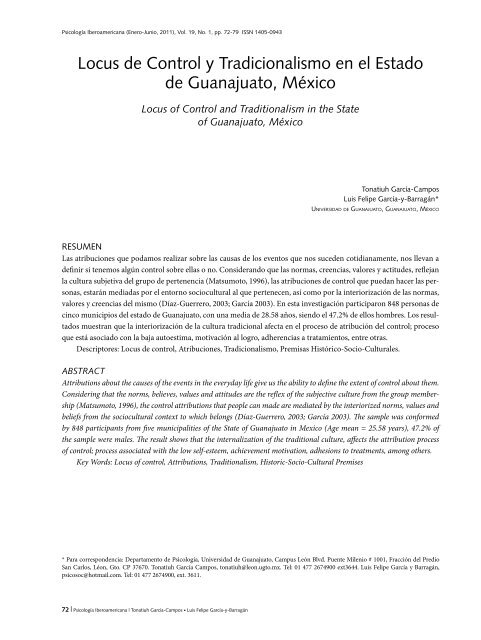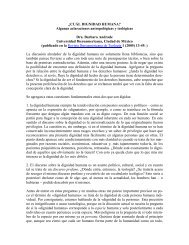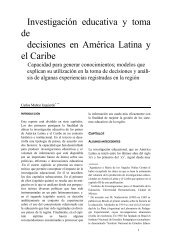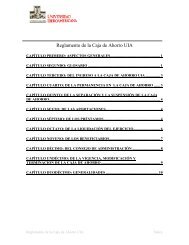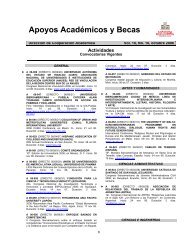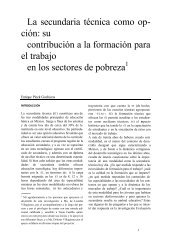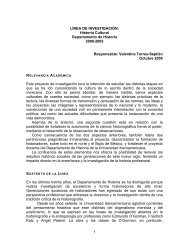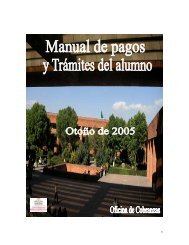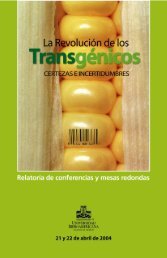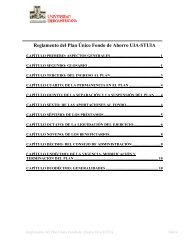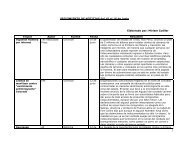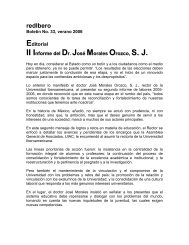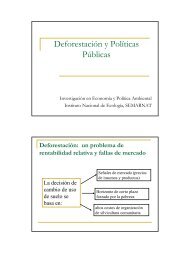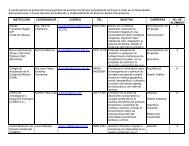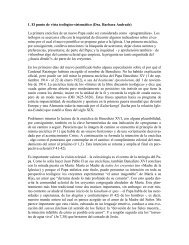19 No. 1 - Universidad Iberoamericana
19 No. 1 - Universidad Iberoamericana
19 No. 1 - Universidad Iberoamericana
You also want an ePaper? Increase the reach of your titles
YUMPU automatically turns print PDFs into web optimized ePapers that Google loves.
Psicología <strong>Iberoamericana</strong> (Enero-Junio, 2011), Vol. <strong>19</strong>, <strong>No</strong>. 1, pp. 72-79 ISSN 1405-0943<br />
Locus de Control y Tradicionalismo en el Estado<br />
de Guanajuato, México<br />
Locus of Control and Traditionalism in the State<br />
of Guanajuato, México<br />
Tonatiuh García-Campos<br />
Luis Felipe García-y-Barragán*<br />
<strong>Universidad</strong> de Guanajuato, Guanajuato, México<br />
Resumen<br />
Las atribuciones que podamos realizar sobre las causas de los eventos que nos suceden cotidianamente, nos llevan a<br />
definir si tenemos algún control sobre ellas o no. Considerando que las normas, creencias, valores y actitudes, reflejan<br />
la cultura subjetiva del grupo de pertenencia (Matsumoto, <strong>19</strong>96), las atribuciones de control que puedan hacer las personas,<br />
estarán mediadas por el entorno sociocultural al que pertenecen, así como por la interiorización de las normas,<br />
valores y creencias del mismo (Díaz-Guerrero, 2003; García 2003). En esta investigación participaron 848 personas de<br />
cinco municipios del estado de Guanajuato, con una media de 28.58 años, siendo el 47.2% de ellos hombres. Los resultados<br />
muestran que la interiorización de la cultura tradicional afecta en el proceso de atribución del control; proceso<br />
que está asociado con la baja autoestima, motivación al logro, adherencias a tratamientos, entre otras.<br />
Descriptores: Locus de control, Atribuciones, Tradicionalismo, Premisas Histórico-Socio-Culturales.<br />
Abstract<br />
Attributions about the causes of the events in the everyday life give us the ability to define the extent of control about them.<br />
Considering that the norms, believes, values and attitudes are the reflex of the subjective culture from the group membership<br />
(Matsumoto, <strong>19</strong>96), the control attributions that people can made are mediated by the interiorized norms, values and<br />
beliefs from the sociocultural context to which belongs (Díaz-Guerrero, 2003; García 2003). The sample was conformed<br />
by 848 participants from five municipalities of the State of Guanajuato in Mexico (Age mean = 25.58 years), 47.2% of<br />
the sample were males. The result shows that the internalization of the traditional culture, affects the attribution process<br />
of control; process associated with the low self-esteem, achievement motivation, adhesions to treatments, among others.<br />
Key Words: Locus of control, Attributions, Traditionalism, Historic-Socio-Cultural Premises<br />
* Para correspondencia: Departamento de Psicología, <strong>Universidad</strong> de Guanajuato, Campus León Blvd. Puente Milenio # 1001, Fracción del Predio<br />
San Carlos, Léon, Gto. CP 37670. Tonatiuh García Campos, tonatiuh@leon.ugto.mx. Tel: 01 477 2674900 ext3644. Luis Felipe García y Barragán,<br />
psicosoc@hotmail.com. Tel: 01 477 2674900, ext. 3611.<br />
72 | Psicología <strong>Iberoamericana</strong> | Tonatiuh García-Campos • Luis Felipe García-y-Barragán


